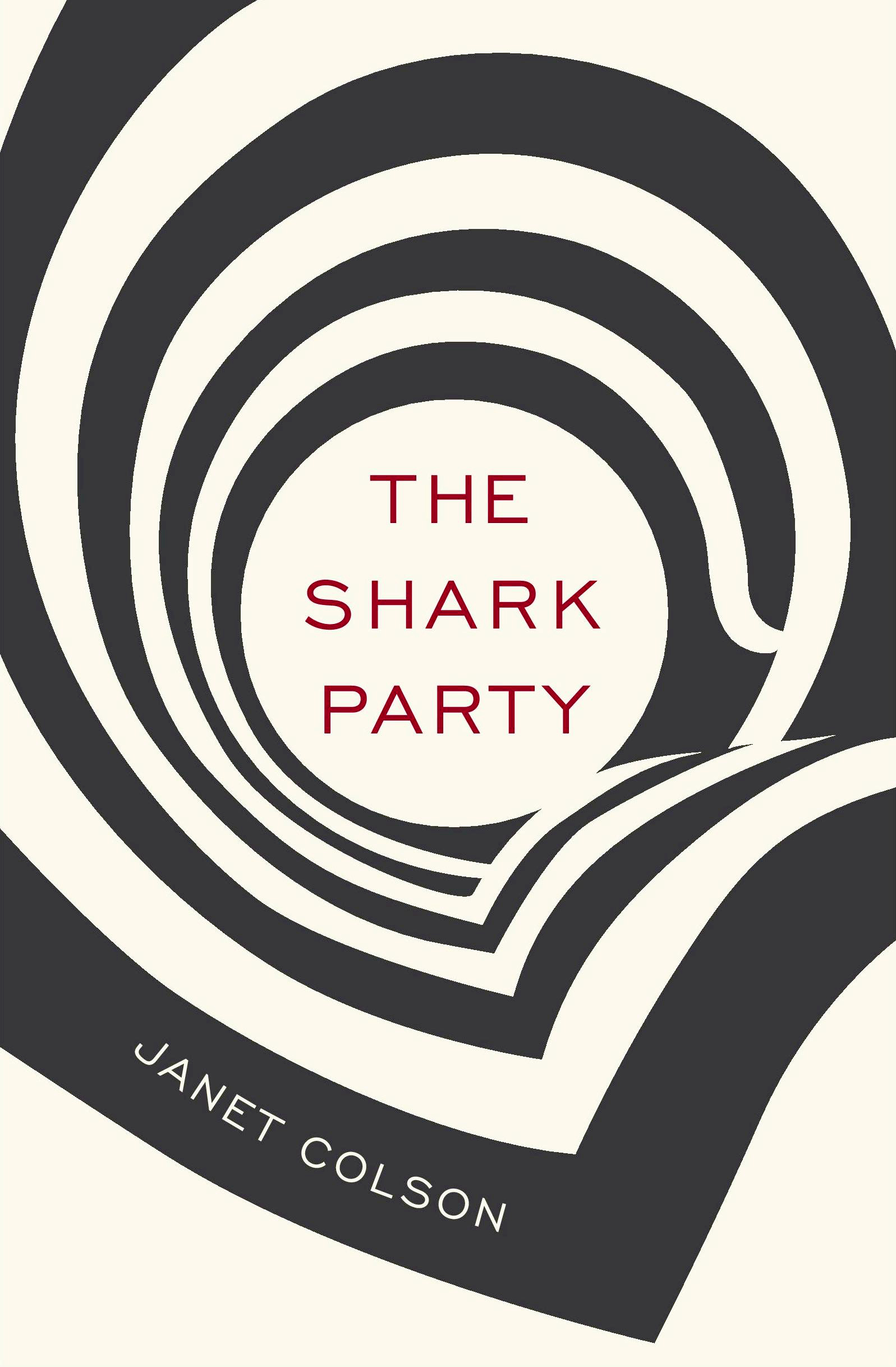There’s a scene early on in Janet Colson’s debut, The Shark Party, in which the female main character has sex with a man. This probably doesn’t constitute too dire a spoiler, but Colson says she was surprised at the responses to an early draft: “There was a very old guy in my writing class who couldn’t read it. He said, ‘It seems like she’s raping him.’ I thought, this is weird. And really what it seemed like was that this was a sex scene from a woman’s perspective.”
It shouldn’t be shocking to read a positive, mutually enjoyable experience described in the woman’s words. Colson makes no apologies for depicting sex — or work, or art, or life — from a perspective she shares with 51 percent of the population. “I wanted to show weakness and bras and clothes. When I’m reading a male-written novel I know I’m in a male world and I have to make allowances for that.”
Questions of gender, perspective and agency recur in The Shark Party — in the service of a fast-moving dramatic thriller, set in and around the Manhattan art world. The book’s protagonist is Carla, a New York artist with a keen eye but a habit of distrusting her own instincts — leading to the jealousy-fuelled unravelling of her Greenwich Village existence. “I hear lots of women putting themselves down,” Colson explains. “They often defer to those around them and find it hard to decide what they really want for themselves. Carla does this a lot at the start.”
One of the novel’s most satisfying shifts is in the way Carla relates to her world. When we meet her, she dazzles with lush, obsessively visual descriptions of the New York high life to rival Brett Easton Ellis. As she’s broken down and builds herself back up again, these open up into a more varied sensory palette, as the character rediscovers sound, music, taste, touch.
“New York was always somewhere where my mind felt free,” Colson explains: “I’m an ordinary person but I was moving in an extraordinary world.” This was the world of arts fundraising. She describes it as “helping other people live their story — not just so people will give them money, but so that they can bring their art form alive”.
She’d long considered her experiences might make a good backdrop for a novel, and says that at her first writing class (Mandy Hager was among the tutors who helped shape her approach) “all the lights just went on”. The Shark Party was the result: an engaging, evocative page-turner of a debut, written in Wellington with an eye on a much larger world. When Colson next steps into that world, hopefully she takes us along.
The Shark Party, Janet Colson, Escalator Press





